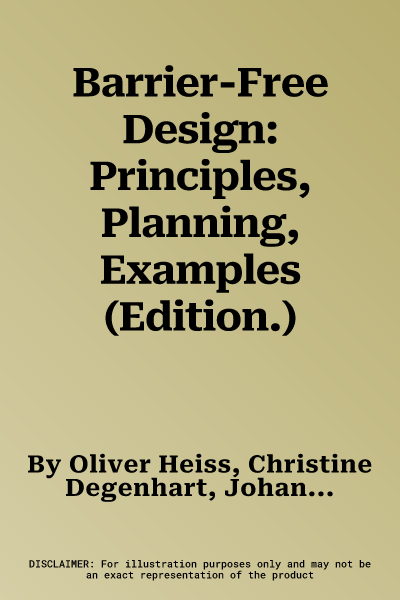Oliver Heiss
(Author)Barrier-Free Design: Principles, Planning, Examples (Edition.)Paperback - Edition., 23 September 2010

Temporarily out of stock
Free Delivery
Cash on Delivery
15 Days
Free Returns
Secure Checkout

Part of Series
Detail Practice
Print Length
112 pages
Language
English
Publisher
Birkhauser
Date Published
23 Sep 2010
ISBN-10
3034605773
ISBN-13
9783034605779
Description
Product Details
Book Edition:
Edition.
Book Format:
Paperback
Country of Origin:
DE
Date Published:
23 September 2010
Dimensions:
29.97 x
21.08 x
1.02 cm
Genre:
Architectural
ISBN-10:
3034605773
ISBN-13:
9783034605779
Language:
English
Location:
Basel/Berlin/Boston
Pages:
112
Publisher:
Series:
Weight:
612.35 gm